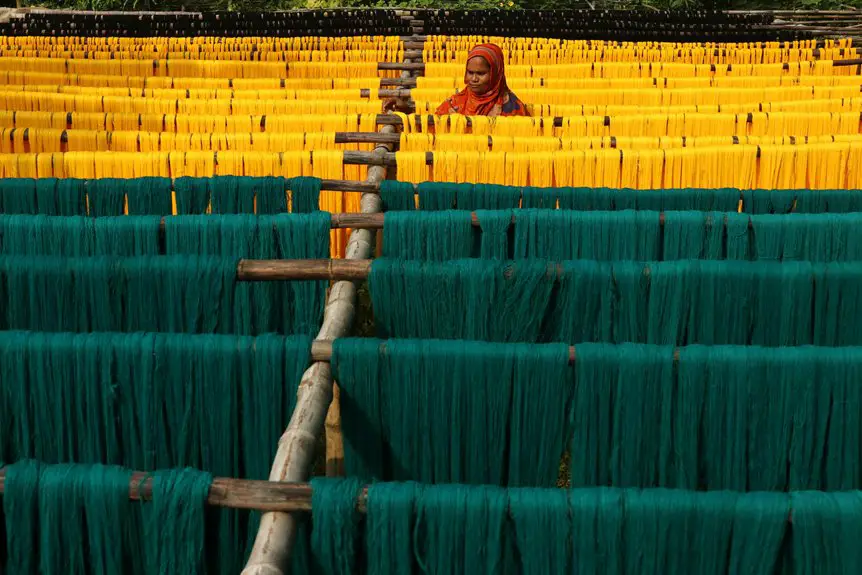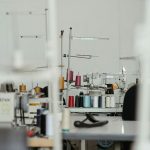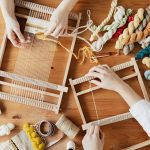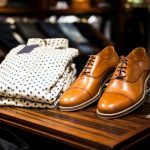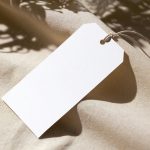You can source durable, high-quality pocketing fabric from leading Bangladeshi manufacturers like Envoy Textiles, Ha-Meem Group, and Fakir Apparels. These suppliers offer competitive prices, extensive customization options, and adhere to strict quality standards such as ISO 9001 and OEKO-TEX certification. They also emphasize sustainable practices and use advanced technology for consistent production. Understanding their strengths and challenges will help you choose the best partner for your fabric needs.
Table of Contents
Key Takeaways
- Bangladesh hosts top pocketing fabric manufacturers like Envoy Textiles, Pacific Jeans, Fakir Apparels, Ha-Meem Group, and Dekko Group.
- Manufacturers offer durable, customizable pocketing fabrics in cotton, polyester, blends, and various weights and finishes.
- Leading producers maintain ISO 9001, OEKO-TEX, and ASTM certifications ensuring high quality and safety standards.
- Competitive pricing, efficient large-scale production, and focus on sustainability characterize Bangladesh’s pocketing fabric suppliers.
- Evaluate manufacturer capacity, certifications, and request samples to ensure fabric quality and reliability before sourcing.
Overview of the Pocketing Fabric Market in Bangladesh
The pocketing fabric market in Bangladesh plays an essential role in the country’s booming garment industry. When you source pocketing fabric here, you’ll find a well-established network of manufacturers dedicated to meeting diverse garment needs.
Bangladesh’s competitive labor costs and skilled workforce guarantee you get quality fabrics at attractive prices. You’ll also appreciate the market’s capacity to handle large orders efficiently, supporting high-volume production runs.
Sustainability is increasingly prioritized, with many suppliers adopting eco-friendly practices. Maneuvering this market, you’ll notice a strong focus on timely delivery and compliance with international standards, which helps maintain your supply chain’s reliability.
Key Features of Pocketing Fabric Produced in Bangladesh
When you source pocketing fabric from Bangladesh, you’ll notice its impressive durability and strength stand out.
They offer a wide variety of material options to suit different needs.
Understanding these features helps you choose the best fabric for your products.
Durability and Strength
Although pocketing fabric might seem like a minor component, its durability and strength play an essential role in the overall quality of your garment.
When you choose pocketing fabric made in Bangladesh, you’re tapping into materials designed to withstand daily wear and tear. These fabrics hold up well against stretching and tearing, ensuring your pockets maintain their shape and functionality over time.
You’ll appreciate how the reinforced weave and quality fibers resist damage, even after multiple washes. This means your garment won’t sag or lose support where it matters most.
Selecting durable pocketing fabric helps you deliver products that last longer, satisfy customers, and reduce returns.
Trusting Bangladesh manufacturers means you get fabric that combines strength with reliability, enhancing your garment’s performance.
Material Variety Options
Durability sets a strong foundation, but variety in material options allows you to tailor pocketing fabric to your specific garment needs.
When sourcing from Bangladesh, you’ll find a diverse selection including cotton, polyester, and blends that combine breathability with strength.
Manufacturers offer fabrics with different weights, weaves, and finishes, so you can choose pocketing that complements both casual and formal wear.
Whether you need lightweight, soft fabrics for comfort or heavier, structured materials for durability, Bangladeshi producers can meet those demands.
This range guarantees your pockets not only function well but also enhance the garment’s overall look and feel.
Leading Manufacturers Specializing in Pocketing Fabric
Several leading manufacturers specialize in pocketing fabric, offering a range of high-quality options tailored to various needs.
When sourcing from Bangladesh, you’ll find companies known for their consistent quality, competitive pricing, and timely delivery.
These manufacturers often provide diverse fabric types, including cotton blends, polyester, and non-woven materials.
Selecting the right partner means you get fabrics suited for apparel, bags, and upholstery applications.
Here are some top manufacturers to take into account:
- Envoy Textiles Ltd: Renowned for innovative fabric solutions.
- Pacific Jeans Ltd: Offers durable and eco-friendly pocketing fabrics.
- Fakir Apparels Ltd: Specializes in custom blends and finishes.
- Ha-Meem Group: Known for large-scale production with quality control.
- Dekko Group: Provides a wide range of fabric textures and weights.
Partnering with these manufacturers guarantees reliable sourcing for your pocketing fabric needs.
Quality Standards and Certifications of Bangladeshi Manufacturers
When you source pocketing fabric from Bangladeshi manufacturers, you can expect adherence to strict quality standards and internationally recognized certifications.
These manufacturers implement rigorous quality control processes, ensuring fabric consistency, durability, and performance meet global requirements. Many hold certifications like ISO 9001 for quality management and OEKO-TEX Standard 100, which guarantees textile safety and absence of harmful substances.
You’ll also find compliance with ASTM standards, assuring the fabric’s physical properties align with industry benchmarks. These certifications not only confirm product reliability but also demonstrate manufacturers’ commitment to maintaining high production standards.
Sustainable Practices in Pocketing Fabric Production
Although sourcing quality pocketing fabric is essential, you should also consider sustainable practices in its production.
Choosing manufacturers committed to eco-friendly methods helps reduce environmental impact and supports ethical labor standards.
When evaluating suppliers, look for those who:
- Use organic or recycled fibers
- Implement water-saving dyeing techniques
- Employ energy-efficient machinery
- Manage chemical waste responsibly
- Maintain fair labor practices and safe working conditions
Pricing Trends for Pocketing Fabric in Bangladesh
As demand for pocketing fabric grows globally, you’ll notice that pricing trends in Bangladesh are influenced by factors like raw material costs, labor rates, and currency fluctuations. You can expect prices to fluctuate seasonally, with raw cotton prices and energy costs playing significant roles. Additionally, advancements in manufacturing technology may slightly reduce costs over time.
| Factor | Impact on Price | Trend Direction |
|---|---|---|
| Raw Material Costs | High influence | Increasing |
| Labor Rates | Moderate influence | Stable |
| Currency Fluctuations | Variable influence | Volatile |
Understanding these trends helps you negotiate better and forecast expenses accurately when sourcing pocketing fabric from Bangladesh.
Export Capabilities and Global Reach of Manufacturers
When you source pocketing fabric, consider manufacturers with strong international shipping networks to guarantee timely delivery.
You’ll want to check their compliance with global standards for quality and sustainability.
Building partnerships with foreign buyers also shows their ability to meet diverse market demands.
International Shipping Networks
Global manufacturers of pocketing fabric rely on robust international shipping networks to deliver products efficiently and on time.
When you source from Bangladesh, you benefit from well-established routes connecting major ports worldwide. These networks guarantee your orders reach you without delays, maintaining supply chain reliability.
Here’s what you can expect from these shipping networks:
- Multiple weekly sailings to key global markets
- Integration with air freight for urgent deliveries
- Advanced tracking systems for real-time shipment updates
- Strong partnerships with global logistics providers
- Flexible options for container sizes and shipping terms
Compliance With Global Standards
Although sourcing pocketing fabric from Bangladesh offers many advantages, verifying compliance with international standards is essential for seamless export and distribution.
When you choose manufacturers here, you benefit from their adherence to global quality certifications like ISO and OEKO-TEX, guaranteeing product safety and environmental responsibility.
These factories also meet strict labor and safety regulations, which helps you avoid compliance issues abroad. Their familiarity with customs regulations and export documentation streamlines shipping, reducing delays and costs.
Plus, many manufacturers invest in regular audits and technology upgrades to maintain these standards, so you can trust the fabric you import meets your market’s expectations.
Partnerships With Foreign Buyers
Since manufacturers in Bangladesh have expanded their export capabilities, you’ll find they easily build strong partnerships with foreign buyers. They focus on understanding international market demands and delivering quality pocketing fabric on time.
When you work with these manufacturers, you benefit from their global reach and efficient communication channels. They also offer competitive pricing without compromising standards.
Here’s what you can expect:
- Timely shipments to meet your production schedules
- Compliance with international trade regulations
- Customization options to suit diverse market needs
- Transparent communication throughout the supply chain
- Long-term collaboration focused on growth and reliability
Customization Options Offered by Bangladeshi Suppliers
When you explore sourcing pocketing fabric from Bangladeshi suppliers, you’ll find they offer a range of customization options tailored to your specific needs.
You can choose fabric types, weights, and finishes to match your product requirements precisely. Many suppliers allow you to specify color shades and fabric blends, guaranteeing your pocketing fabric complements your garment design perfectly.
Additionally, you can request custom widths and lengths, giving you flexibility in production. Some manufacturers also provide options for special coatings, like water-resistant or anti-static finishes, enhancing fabric functionality.
Custom widths, lengths, and special coatings like water-resistant finishes boost production flexibility and fabric functionality.
By working closely with these suppliers, you can verify the pocketing fabric meets both your quality standards and design specifications, making your sourcing process smooth and efficient.
This customization capability sets Bangladeshi suppliers apart in the global textile market.
Technological Advancements in Fabric Manufacturing
You’ll find that automation is transforming textile production, making processes faster and more consistent.
At the same time, sustainable fabric innovations are reducing environmental impact without sacrificing quality.
Keeping up with these advancements helps you source pocketing fabric that meets both efficiency and eco-friendly standards.
Automation in Textile Production
Although automation has transformed many industries, its impact on textile production is particularly profound. When you source pocketing fabric, you benefit from faster turnaround times and consistent quality thanks to automated processes.
Automation helps reduce human error, improving fabric durability and uniformity. It also boosts production capacity, meeting high demand efficiently. Plus, automated machinery can handle complex designs and fabric blends with precision.
Here’s what automation brings to textile production:
- Increased speed and efficiency in weaving and knitting
- Enhanced quality control through real-time monitoring
- Reduced labor costs without sacrificing craftsmanship
- Greater flexibility in fabric customization
- Minimization of material waste through precise cutting
Sustainable Fabric Innovations
As the textile industry evolves, sustainable fabric innovations are reshaping how manufacturers source and produce pocketing fabric.
You’ll find that many manufacturers in Bangladesh now use eco-friendly fibers like organic cotton and recycled polyester. These materials reduce environmental impact without compromising durability or comfort.
Advanced dyeing techniques minimize water and chemical use, making production cleaner. You can also explore fabrics made through closed-loop recycling processes, which greatly cut waste.
With increased consumer demand for sustainability, manufacturers are investing in technologies that boost efficiency and lower carbon footprints.
By choosing suppliers committed to these innovations, you support a greener supply chain and guarantee your pocketing fabric aligns with modern eco-conscious standards.
This shift not only benefits the environment but also enhances your brand’s reputation.
Challenges Faced by Pocketing Fabric Producers in Bangladesh
When you explore pocketing fabric production in Bangladesh, you’ll notice several key challenges that producers regularly face.
These obstacles can affect quality, delivery, and overall business growth. To navigate this landscape effectively, you should understand:
Challenges in quality, delivery, and growth require a deep understanding to navigate Bangladesh’s fabric production landscape effectively.
- Limited access to advanced machinery, impacting fabric consistency
- Fluctuating raw material costs, which squeeze profit margins
- Energy supply instability, causing production delays
- Skilled labor shortages, affecting craftsmanship and efficiency
- Compliance pressures from environmental and labor regulations
How to Choose the Right Pocketing Fabric Manufacturer in Bangladesh
Why should you carefully select your pocketing fabric manufacturer in Bangladesh? Choosing the right partner guarantees you get consistent quality, timely delivery, and competitive pricing.
Start by evaluating their production capacity and certifications to meet your standards. Check their experience in pocketing fabric specifically, as expertise matters. Don’t forget to request samples to verify fabric quality.
Also, consider communication—clear, responsive dialogue prevents misunderstandings. Examine their commitment to sustainability and compliance with labor laws, which reflect reliability.
Finally, review client testimonials or case studies to gauge reputation. By thoroughly vetting manufacturers on these factors, you’ll avoid costly delays and subpar products, securing a smooth sourcing process that supports your business goals effectively.
Frequently Asked Questions
What Is the Typical Lead Time for Pocketing Fabric Orders in Bangladesh?
You can typically expect a lead time of 2 to 4 weeks for pocketing fabric orders in Bangladesh, depending on order size and manufacturer capacity. It’s smart to confirm timelines directly with your supplier before placing orders.
Can Bangladeshi Manufacturers Provide Small Batch Orders for Pocketing Fabric?
Yes, you can find manufacturers in Bangladesh who accommodate small batch orders for pocketing fabric. They understand diverse client needs and often offer flexible minimum order quantities to support your production scale efficiently.
Are There Any Local Regulations Affecting Pocketing Fabric Exports From Bangladesh?
Imagine exporting pocketing fabric like steering a river with shifting currents—Bangladesh’s local regulations, including quality standards and export duties, can influence your journey. You’ll want to stay updated to avoid unexpected obstacles.
What Payment Methods Do Bangladeshi Pocketing Fabric Suppliers Accept?
You’ll find Bangladeshi pocketing fabric suppliers typically accept wire transfers, letters of credit, and sometimes PayPal or escrow services. Make sure you clarify payment terms upfront to avoid delays or misunderstandings during your transaction.
How Do Manufacturers Handle Fabric Defects or Quality Issues in Bangladesh?
You’d think fabric defects could swallow whole shipments, but manufacturers catch them early through strict inspections. They’ll fix, replace, or reject flawed fabric fast, ensuring your order meets quality standards without delay or drama.
- Kevlar Vs Fiberglass: Choosing the Right Composite Material - June 21, 2025
- Kevlar Fire Fighter Apron: Protection and Durability - June 21, 2025
- Kevlar Fabric Testing: How to Evaluate Quality and Performance - June 21, 2025

